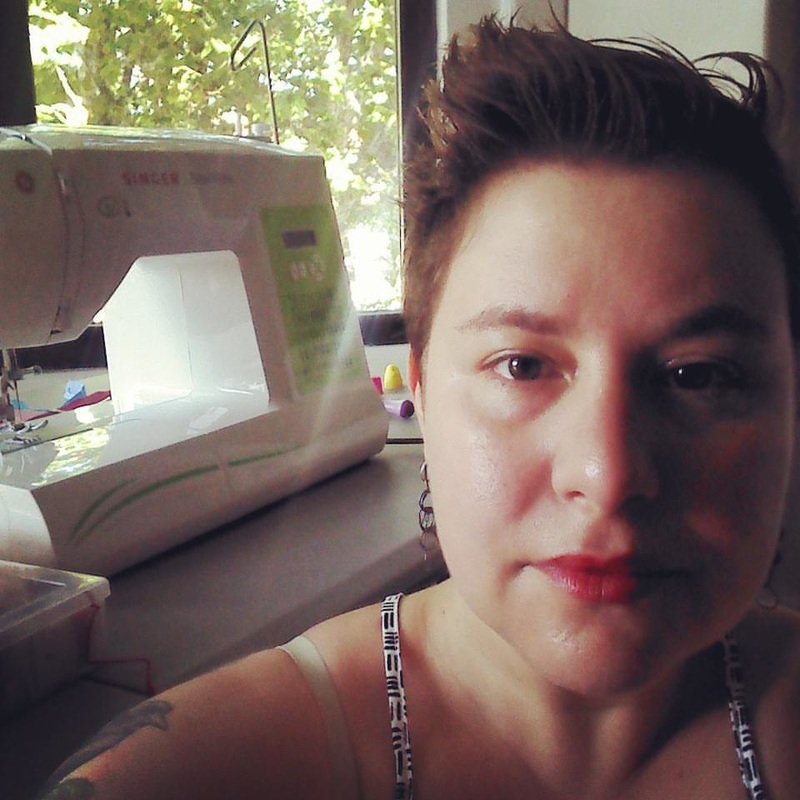|
I am an activist who uses art in my organizing work, and an artist who engages in issues of racial and social justice. As a community taught textile artist, my work spans the divide between fine art and craft. I believe that traditional textile techniques, particularly quilting, can provide a fertile platform for creating dialog and understanding around complex ideas and issues.
Quilting has been a revolutionary medium for most of its history. Abolitionist quilters in the 19th century used quilts not only to fundraise for the movement to end slavery, but incorporated imagery and poetry that drew on the emotional power of quilts to encourage their viewers to extend their care and empathy to enslaved mothers and families. Freedom quilting bees were a fundraising and organizing tool for Black women in the Civil Rights Movement, and were a quilts were powerful strategy in AIDS activism. My work draws on this radical history to use quilts to explore, unpack, and organize around some of the most pressing issues of our political moment, including incarceration, white supremacy, and the climate crisis. My quilts are a form of research, study, and activism. My projects often begin with a question: "How many people have been killed by the Chicago Police?" "How did the textile trade and the slave trade overlap?" "What is the impact of prison on the families who are separated by incarceration?" I partner with directly impacted individuals, community organizations, and historians to explore these questions with the people who understand them best. Using maps, archival documents, and community quilting circles, I invite participants to join me in exploring deep into the history of structures of race, gender, and power. We join together around quilts and talk about these questions, learning and processing as we sew. The slow process of stitching occupies our hands and slows our minds. It allows us to speak freely and listen deeply. It forces us to travel from the general to the particular. The meditative act of embroidering a name or a place engenders a kind of radical empathy. The process of making, alone or in community, is as central to my practice as the finished work itself. Press and Publications Download CV Contact Me: Rachel.a.wallis (at) gmail.com https://www.instagram.com/radicalquilter/ |
